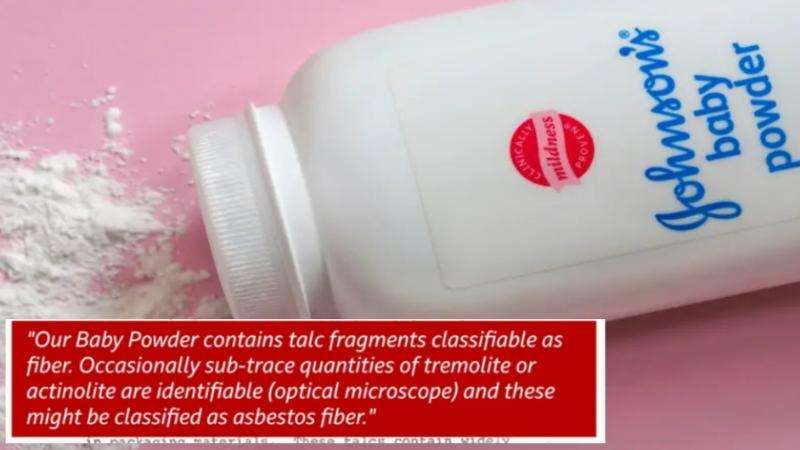A legal avalanche against pharmaceutical giant Johnson & Johnson (J&J) is gathering force in the UK, as approximately 3,000 individuals file a major product liability claim alleging the company knowingly sold asbestos-contaminated talcum powder for decades, a product linked to potentially deadly cancers. The claim, which lawyers estimate could seek hundreds of millions of pounds in damages and become the largest of its kind in British history, mirrors extensive and costly litigation that has cost J&J billions in the United States.
The core of the UK lawsuit centers on allegations that J&J was aware as far back as the 1960s that its talc-based products, including the iconic Johnson's Baby Powder, contained fibrous forms of talc, as well as the minerals tremolite and actinolite. When in their fibrous, needle-like form, these minerals are classified as asbestos, a well-established human carcinogen. The claim argues that internal memos and scientific reports will demonstrate J&J's decades-long effort to conceal this risk from regulators and consumers, opting instead for aggressive marketing campaigns that positioned the powder as a symbol of purity and safety.
Despite internal discussions from the 1970s referencing the presence of fibers and a proposal to "keep the whole thing confidential" rather than patent a method to remove asbestos, the company allegedly failed to issue warnings on its product packaging. Court documents further allege that J&J actively pushed the US Food and Drug Administration (FDA) to accept lower sensitivity standards for talc testing, which would tolerate up to 1% asbestos contamination, allowing the company to maintain claims of product purity.
Many of the UK claimants have been diagnosed with, or have died from, ovarian cancer or mesothelioma—a cancer typically caused by asbestos exposure—after using J&J's baby powder over extended periods.
The Global Scale of Litigation
The UK action follows years of intense legal battles in the US, where the total number of lawsuits against J&J has surged to over 67,000 in multidistrict litigation in New Jersey as of late 2025. Recent developments show the litigation is escalating:
* Massive Verdicts: In a staggering defeat for J&J in October 2025, a Los Angeles jury awarded a $966 million verdict to the family of a woman who died from mesothelioma after using the talcum powder. The jury found that J&J was liable for causing the cancer and acted with malice or oppression by concealing the risk. This comes on the heels of a separate Connecticut case where a judge increased a mesothelioma verdict to $25 million for a plaintiff.
* Failed Bankruptcy Strategy: J&J's controversial attempt to resolve the claims through a "Texas Two-Step" bankruptcy—creating a subsidiary to absorb the talc liability and then having it file for Chapter 11—was rejected by a federal judge in March 2025 for the third time. The company had proposed a settlement amount that grew from an initial $6.5 billion to a reported $8-10 billion for ovarian cancer claims, but the strategy was ultimately unsuccessful, forcing the company back into individual litigation.
* Settlements for Misleading Marketing: Separately, in January 2024, J&J tentatively agreed to pay $700 million to settle consumer protection claims with 42 US states and the District of Columbia over allegations the company wrongfully marketed its talc-based products without warning consumers of health risks.
J&J, which spun off its consumer health arm into a new company called Kenvue, maintains its products are safe, arguing that decades of testing by "independent and leading laboratories" prove its baby powder "did not contain asbestos, and does not cause cancer." The company officially stopped the sale of talc-based baby powder globally in 2023, transitioning to a cornstarch formula, but continues to face the legal fallout from its previous product.
The mounting pressure from the UK and US courts, coupled with the rejection of the bankruptcy strategy, indicates that J&J will continue to face the claims in court individually while settlement negotiations, overseen by a court-appointed mediator since July 2025, remain ongoing for the ovarian cancer claims.








.svg)


_2.jpg)
